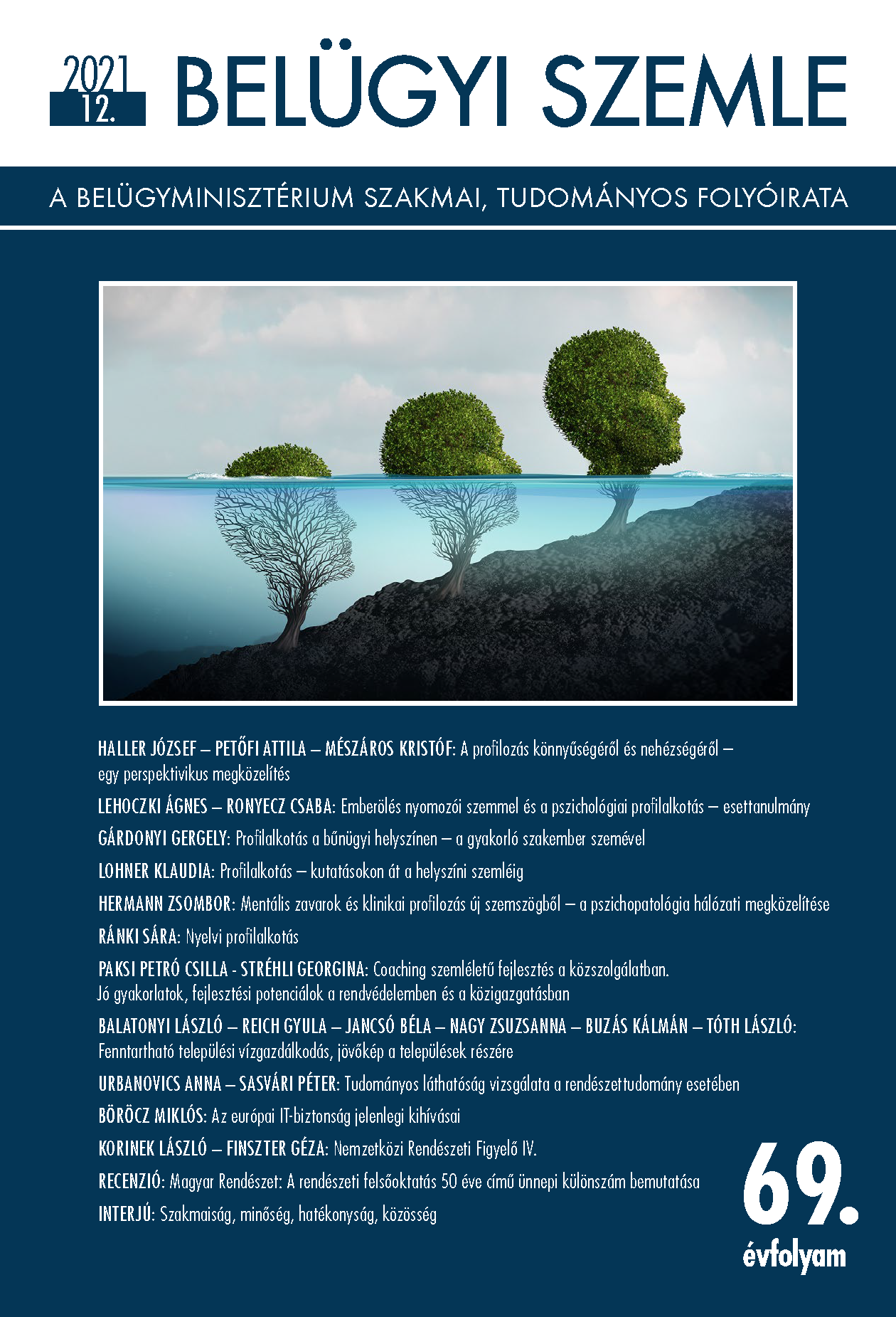Abstract
The expectations facing the civil service executives and their everyday challenges are outstandingly complex. During the career of an executive a number of hardships occur, which cannot be overcome with standard responses. The individual problems require individual solutions. The innovative training forms adapted to the expectations of the 21st century are able to appropriately support the strengthening of the successes of the executives. The following are indispensable for the leaders: high level self-knowledge, leadership consciousness and the ability of self-reflexion. These capabilities may be efficiently developed with the aid of coaching based training. This ensures the integration of the new knowledge and behaviour patterns into everyday work, self-reflection, and the increase of leadership consciousness. Skill level acquiring and in-depth learning of competences are far more successful with coaching than with any other learning form. According to the researches, coaching is a personalised, highly efficient competence development system that takes into consideration the loads and burdens of the leaders, and which is flexible as regards time and space. The coaching method is regularly used by the decisive majority of the international civil service training practice. Unlike the case of domestic civil service. The further training system operates both in the area of public administration and in the area of law enforcement. It pays an increasing attention beyond vocational preparedness also to the development of competence. The purpose of civil service further training is to encourage the voluntary learning of the staff, to awaken their motivation and instead of conveying static knowledge to form the attitude, value orientation and self- development of soft skills. Instead of the traditional lecture -focused training forms the using of practical training and the method of e-learning became widespread in the recent years. In the case of both professional areas it is possible to complete short one-three day and e-learning courses of the training palette and methodology which are under continuous development. At the same time, the introduction of several training methods of advanced approach (as e.g., coaching) has been started to be used only in a scattered manner. It would be possible to increase the performance of the executives working in the civil service organizations significantly by integration and system-level development of these methods, and through this it would be possible to increase the performance of the organisational units themselves considerably. Our study briefly introduces the executive training system of law enforcement and civil service, its results, and it examines the international and domestic practice of the appearance of coaching based executive training, as well as the huge amount of inherent, unexploited potentials.

